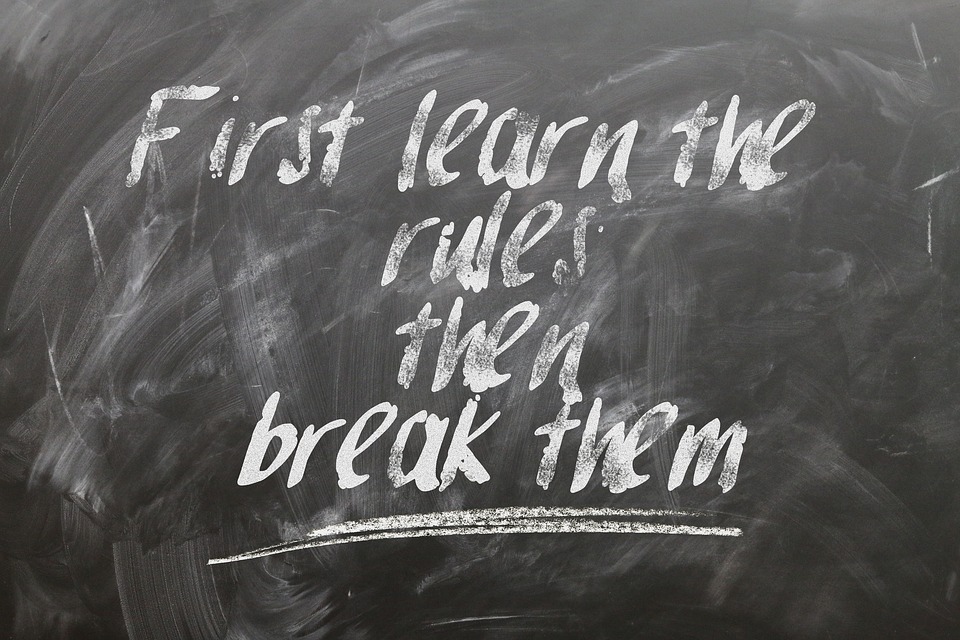This topic begins with a double negative because one has to fetch the reader’s consciousness from its expected place. It works on the assumption that we expect atheists to be incompatible with morals and thus proceeds to use that as a starting point.
Why would this question need to be answered in the first place? Most mainstream religions have self-centred philosophies that tends to make their followers believe that they have the best morals and anyone who does not think as they do must be very wrong. Now, what can be worse than a man who has no morals?
A man with no morals is unpredictable
The real fact is that a man with no morals is simply scary because he is unpredictable. We like people to be predictable, that’s human nature and even more, we like people to be like us. Now, who would be more like us than the same people who sit in our religious gatherings? At least we listen to the same dictators of philosophy that our morals are based on.
 Yet when you boil all philosophy down to behaviours we all believe in the same behaviour toward our fellow man but we have various different ways to believe and often different reasons why we behave the ways we do. A Reiki healer might speak about universal energy that heals while the Christian might call it the grace of God and the Cabbalist the light of the creator and a native might call it powerful spirit and yet it is the same thing. It’s not what you call it that really matters.
Yet when you boil all philosophy down to behaviours we all believe in the same behaviour toward our fellow man but we have various different ways to believe and often different reasons why we behave the ways we do. A Reiki healer might speak about universal energy that heals while the Christian might call it the grace of God and the Cabbalist the light of the creator and a native might call it powerful spirit and yet it is the same thing. It’s not what you call it that really matters.
Unfortunately, the collective ego of every individual mainstream religious group will even go to war to maintain the name they use, and what are they killing and dying for anyway? It’s simply a thought construct to explain the unexplainable. It is baffling why people will kill people for thinking in another way or using other words.
Atheists decided to take the hard way and to look life straight in the eye to find their morals there. They have no moral maker so they cannot blame anyone when things don’t work out. They have to take personal responsibility for their actions and consequences. This in effect makes them even more moral than religious people.
Through industrial psychology in company leadership and management discussions, it is a known fact that rules thought up by the very people who have to follow those rules are more effective and thus more abided by those people. When rules are imposed by management without consulting the workers then the employees are often not inclined to follow those rules.
In religion, people live by imposed rules whereas in atheism people live by self-made up rules. Human nature as discovered within company leadership dictates that religious people will not necessarily follow all their set morals, while atheists are more likely to live by their own moralistic convictions.
Most religions give their deities personalities and thus ego traits.
Ego, the illusion of separation creates a false idea that you can do something when the other is not looking. In this case a deity. It allows for them to overstep the line unconsciously because they don’t take personal responsibility for their actions. When it does not work they blame the lawmaker or the moral maker.
Atheists are not like naughty children
Atheists are not like naughty children hiding from an angry parent Gods or obediently doing whatever their ‘God’ gives them permission to do without really thinking it through. Atheists prefer to think for themselves and to create their own working morals as they go along. They cannot hide their misdeeds because they are the moral makers and enforcers onto themselves and in every moment the moral maker is present. They have to answer for themselves at all time.
One may mistakenly think that those who seemingly don’t have any parental archetype or deity watching over them to keep them in line will not have morals. In most cases they not only have well thought out morals but they also live more up to their moral convictions than most religious people do.
Our fears and speculations were created in our minds, the mind of the beholder
In psychology, we know that when speculating we assume in others what we have in ourselves. When one assumes that another person needs set rules to live by, less they might just become wild and unpredictable, then let it be known that the very same feared trait, might be the very thing hidden in the dark psyche of the person making that judgement. Thus we only fear ourselves.
There really is no reason to fear the morals or actions of atheist people. In their honesty with themselves and life, they are not afraid to look at their deeds blatantly and to evaluate their actions and consequences. So, therefore, one might actually appreciate more honesty and better obedience to their morals than most other people.






